- Browse
- Python
Results for "python"
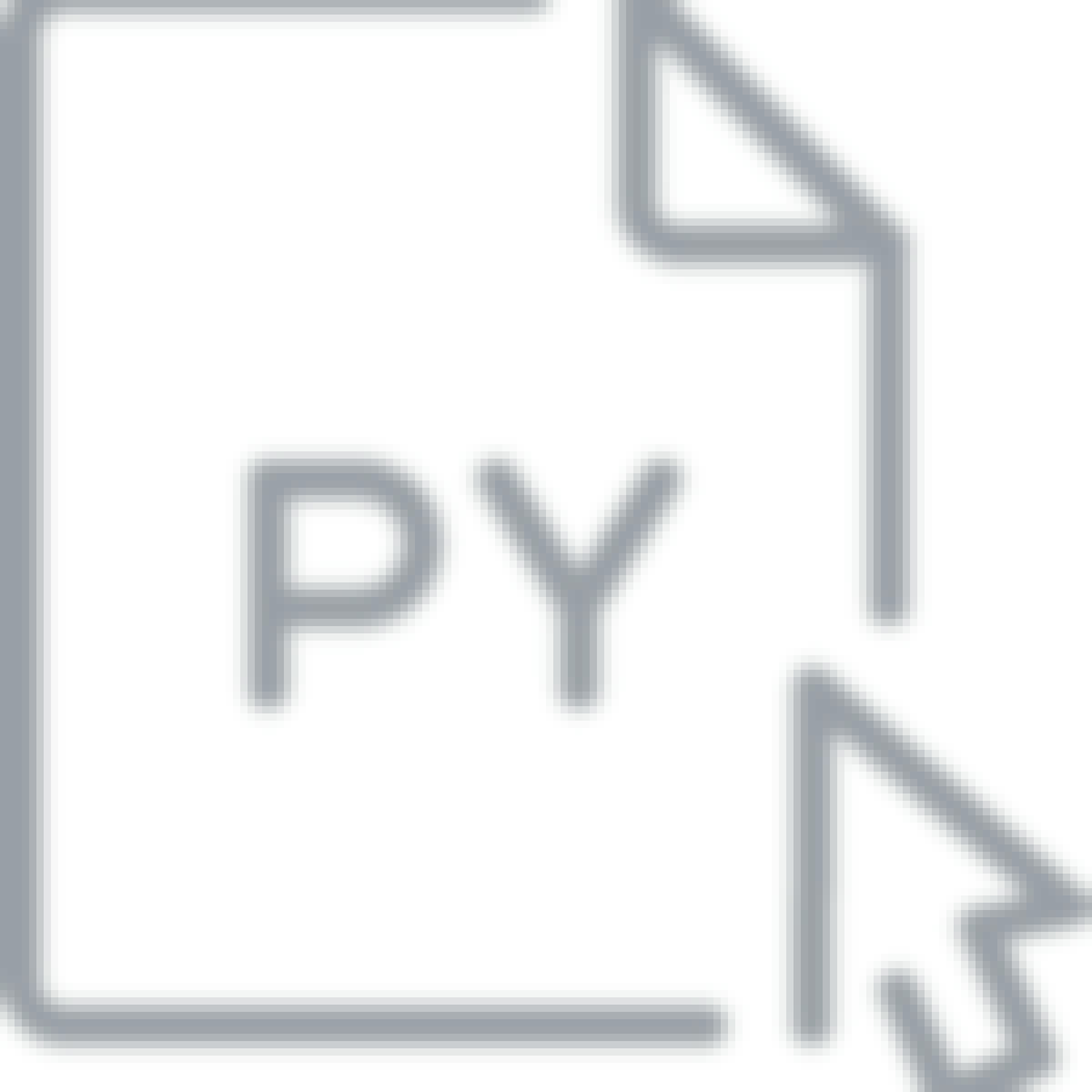 Status: NewNewStatus: Free TrialFree Trial
Status: NewNewStatus: Free TrialFree TrialSkills you'll gain: Object Oriented Programming (OOP), Data Structures, Data Cleansing, Python Programming, Data Analysis, NumPy, Pandas (Python Package), Data Manipulation, Programming Principles, Scripting, Algorithms
4.6·Rating, 4.6 out of 5 stars32 reviewsBeginner · Course · 1 - 4 Weeks
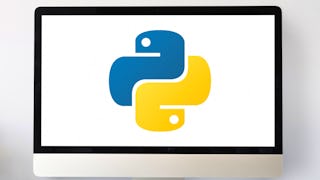 Status: Free TrialFree Trial
Status: Free TrialFree TrialSkills you'll gain: Data Import/Export, Programming Principles, Web Scraping, File I/O, Python Programming, Jupyter, Data Structures, Pandas (Python Package), Data Manipulation, JSON, Computer Programming, Restful API, NumPy, Object Oriented Programming (OOP), Application Programming Interface (API), Automation, Data Analysis
4.6·Rating, 4.6 out of 5 stars43K reviewsBeginner · Course · 1 - 3 Months
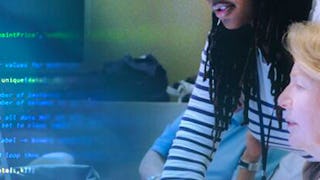 Status: Free TrialFree TrialU
Status: Free TrialFree TrialUUniversity of Michigan
Skills you'll gain: Database Design, Data Processing, Debugging, Web Scraping, Data Visualization, Relational Databases, Restful API, Web Services, SQL, Databases, Data Visualization Software, JSON, Interactive Data Visualization, Extensible Markup Language (XML), Data Structures, Data Cleansing, Programming Principles, Data Analysis, Python Programming, Computer Programming
Build toward a degree
4.8·Rating, 4.8 out of 5 stars280K reviewsBeginner · Specialization · 3 - 6 Months
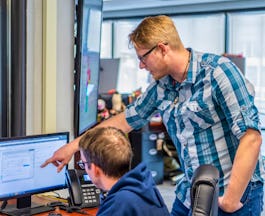 Status: Free TrialFree TrialG
Status: Free TrialFree TrialGGoogle
Skills you'll gain: Program Development, Programming Principles, Python Programming, Computer Programming, Computational Thinking, Problem Management, Data Structures, Integrated Development Environments, Debugging, Development Environment
4.8·Rating, 4.8 out of 5 stars40K reviewsBeginner · Course · 1 - 3 Months
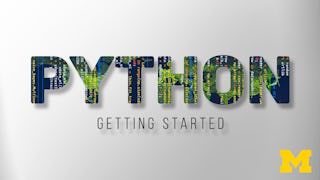 Status: Free TrialFree TrialU
Status: Free TrialFree TrialUUniversity of Michigan
Skills you'll gain: Debugging, Programming Principles, Computer Programming, Python Programming, Integrated Development Environments, Computer Programming Tools, Computational Thinking, Software Installation
4.8·Rating, 4.8 out of 5 stars233K reviewsBeginner · Course · 1 - 3 Months
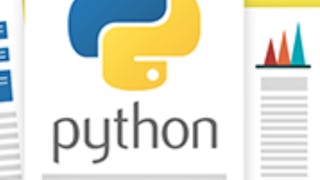 Status: Free TrialFree Trial
Status: Free TrialFree TrialSkills you'll gain: Exploratory Data Analysis, Data Analysis, Data Import/Export, Data Manipulation, Data Transformation, Predictive Modeling, Data Cleansing, Data Preprocessing, Model Evaluation, Predictive Analytics, Pandas (Python Package), Regression Analysis, Feature Engineering, Statistical Analysis, Matplotlib, Scikit Learn (Machine Learning Library), Data Visualization, NumPy, Python Programming
4.7·Rating, 4.7 out of 5 stars20K reviewsIntermediate · Course · 1 - 3 Months
What brings you to Coursera today?
 Status: Free TrialFree Trial
Status: Free TrialFree TrialSkills you'll gain: Object Oriented Programming (OOP), Unit Testing, Test Driven Development (TDD), Programming Principles, Software Testing, Data Structures, Python Programming, Computer Programming, Development Environment, Integrated Development Environments, Debugging, Django (Web Framework), Cloud Hosting
4.6·Rating, 4.6 out of 5 stars1.8K reviewsBeginner · Course · 1 - 3 Months
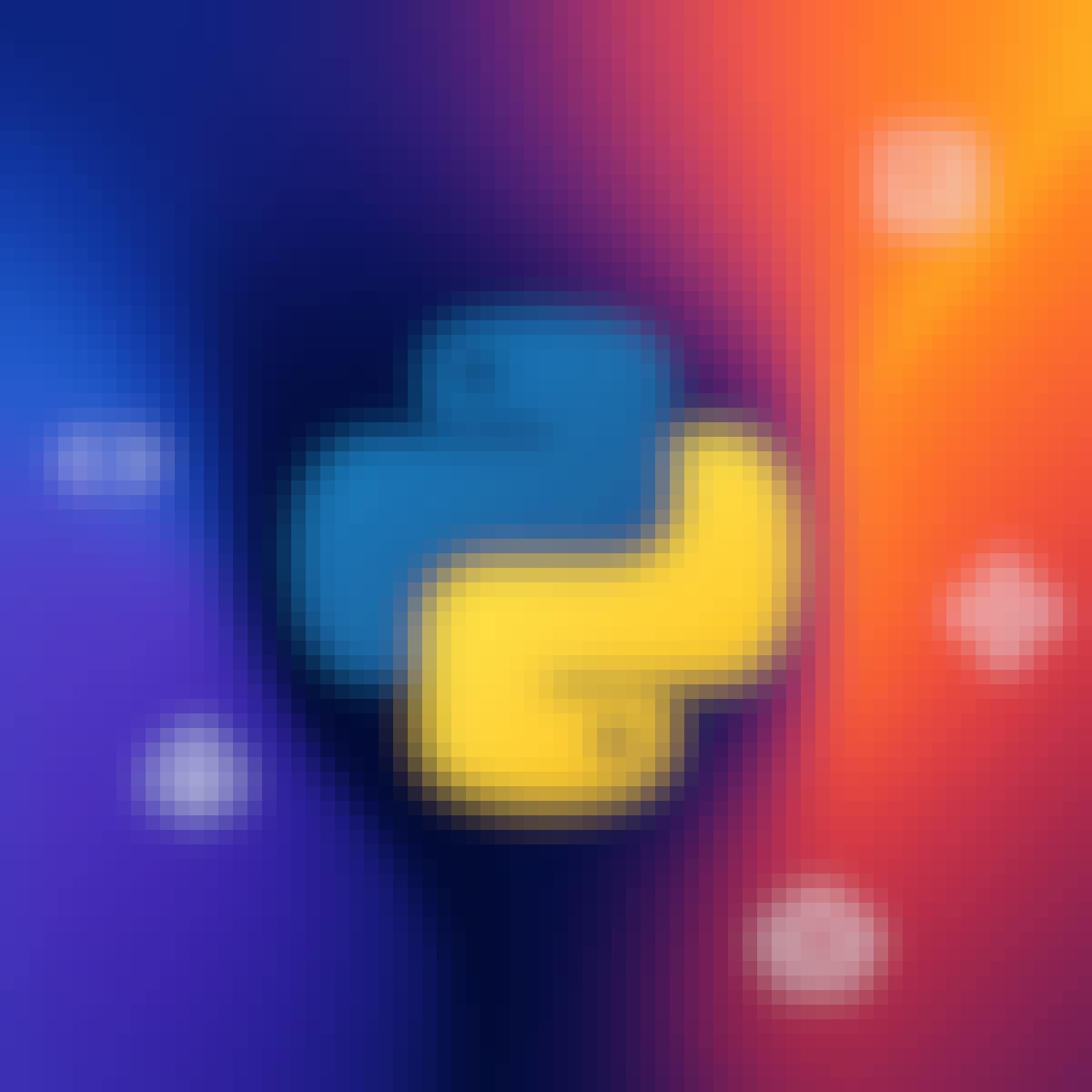 Status: Free TrialFree TrialU
Status: Free TrialFree TrialUUniversity of Michigan
Skills you'll gain: Unified Modeling Language, JSON, Object Oriented Programming (OOP), File I/O, Software Design, Debugging, Object Oriented Design, Data Processing, Web Scraping, Unit Testing, Programming Principles, Program Development, Python Programming, Data Import/Export, Restful API, Image Analysis, Data Manipulation, Jupyter, Computer Programming, Data Structures
4.8·Rating, 4.8 out of 5 stars23K reviewsBeginner · Specialization · 3 - 6 Months
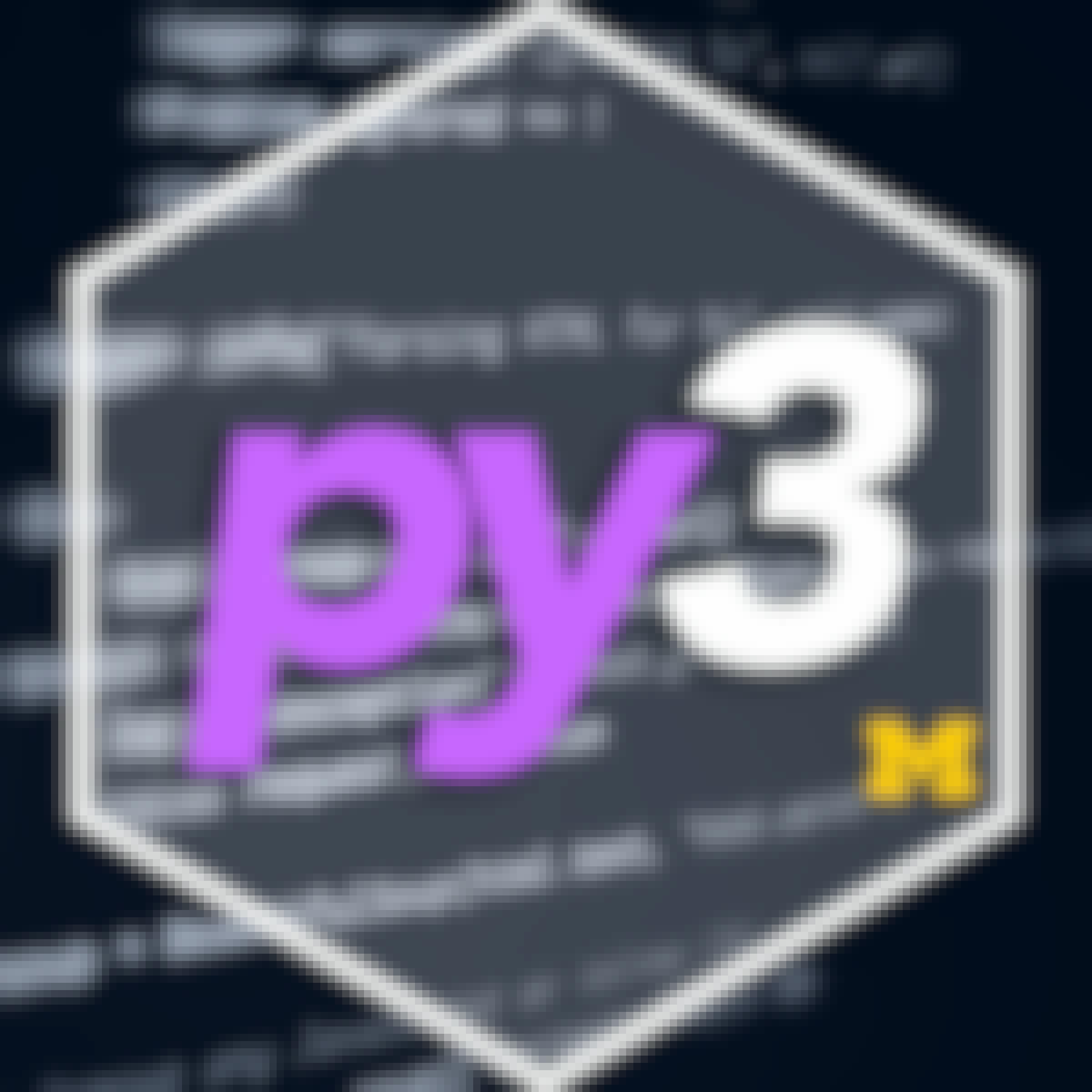 Status: Free TrialFree TrialU
Status: Free TrialFree TrialUUniversity of Michigan
Skills you'll gain: Debugging, Programming Principles, Program Development, Python Programming, Data Structures, Computer Programming, Computer Graphics, Diagram Design
4.8·Rating, 4.8 out of 5 stars18K reviewsBeginner · Course · 1 - 4 Weeks
 Status: Free TrialFree TrialM
Status: Free TrialFree TrialMMicrosoft
Skills you'll gain: Web Scraping, Data Structures, Git (Version Control System), Generative AI, Version Control, Matplotlib, Devops Tools, Plotly, DevOps, Agile Methodology, Web Development, Data Ethics, Flask (Web Framework), Data Visualization, Scripting, GitHub, Debugging, Data Analysis, Automation, Cloud Computing
4.4·Rating, 4.4 out of 5 stars640 reviewsBeginner · Professional Certificate · 3 - 6 Months
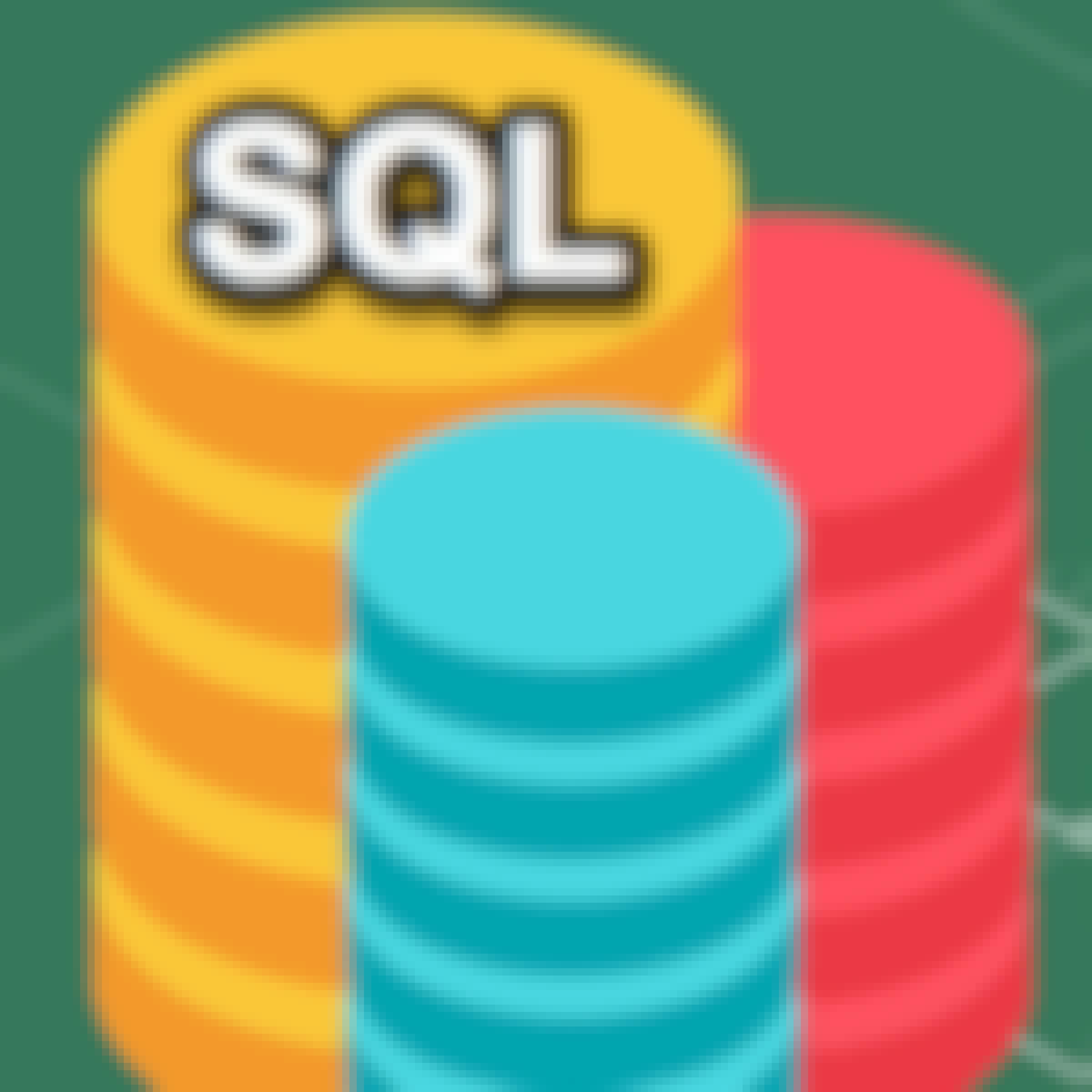 Status: Free TrialFree Trial
Status: Free TrialFree TrialSkills you'll gain: SQL, Relational Databases, Stored Procedure, Databases, Query Languages, Jupyter, Data Manipulation, Data Analysis, Pandas (Python Package), Transaction Processing, Python Programming
4.7·Rating, 4.7 out of 5 stars23K reviewsBeginner · Course · 1 - 3 Months
 Status: Free TrialFree Trial
Status: Free TrialFree TrialSkills you'll gain: Unsupervised Learning, Supervised Learning, Model Evaluation, Regression Analysis, Scikit Learn (Machine Learning Library), Applied Machine Learning, Predictive Modeling, Machine Learning, Dimensionality Reduction, Decision Tree Learning, Python Programming, Logistic Regression, Classification Algorithms, Feature Engineering
4.7·Rating, 4.7 out of 5 stars18K reviewsIntermediate · Course · 1 - 3 Months
What brings you to Coursera today?
In summary, here are 10 of our most popular python courses
- Introduction to Data Analysis Using Python: Google
- Python for Data Science, AI & Development: IBM
- Python for Everybody: University of Michigan
- Crash Course on Python: Google
- Programming for Everybody (Getting Started with Python): University of Michigan
- Data Analysis with Python: IBM
- Programming in Python: Meta
- Python 3 Programming: University of Michigan
- Python Basics: University of Michigan
- Microsoft Python Development: Microsoft
Frequently Asked Questions about Python
Python is a versatile programming language known for its readability and simplicity. It is widely used in various fields, including web development, data analysis, artificial intelligence, and scientific computing. Its importance lies in its ability to empower individuals and organizations to automate tasks, analyze data, and create applications efficiently. As technology continues to evolve, Python remains a crucial skill for anyone looking to thrive in the digital landscape.
With Python skills, you can pursue various job roles, including software developer, data analyst, data scientist, machine learning engineer, and web developer. These positions are in high demand across industries, as companies seek professionals who can leverage Python for data-driven decision-making and automation. Additionally, roles in cybersecurity and artificial intelligence are increasingly looking for candidates with Python expertise.
To learn Python effectively, you should focus on several key skills. Start with the basics of programming, including syntax, data types, and control structures. Understanding libraries and frameworks, such as Pandas for data manipulation and Flask for web development, is also essential. Additionally, familiarity with version control systems like Git and knowledge of databases can enhance your Python proficiency.
There are many excellent online Python courses available. For beginners, the BiteSize Python for Absolute Beginners Specialization offers a gentle introduction. For those looking to advance their skills, the AI and Machine Learning Essentials with Python Specialization provides a solid foundation in applying Python to AI. Additionally, the Data Analysis with Python Specialization is great for those interested in data science.
Yes. You can start learning python on Coursera for free in two ways:
- Preview the first module of many python courses at no cost. This includes video lessons, readings, graded assignments, and Coursera Coach (where available).
- Start a 7-day free trial for Specializations or Coursera Plus. This gives you full access to all course content across eligible programs within the timeframe of your trial.
If you want to keep learning, earn a certificate in python, or unlock full course access after the preview or trial, you can upgrade or apply for financial aid.
To learn Python, begin by choosing a structured course or specialization that matches your skill level. Dedicate time to practice coding regularly, as hands-on experience is crucial. Utilize online resources, such as forums and coding communities, to seek help and collaborate with others. Finally, work on personal projects to apply what you've learned and reinforce your skills.
Typical topics covered in Python courses include basic syntax, data structures (like lists and dictionaries), control flow (if statements, loops), functions, and modules. Advanced courses may explore object-oriented programming, web development frameworks, data analysis libraries, and machine learning techniques. This comprehensive curriculum ensures you gain a well-rounded understanding of Python.
For training and upskilling employees, the Google IT Automation with Python Professional Certificate is an excellent choice, as it focuses on practical skills for IT professionals. Additionally, the Microsoft Python Development Professional Certificate provides a robust foundation for those looking to enhance their programming capabilities in a corporate environment.










